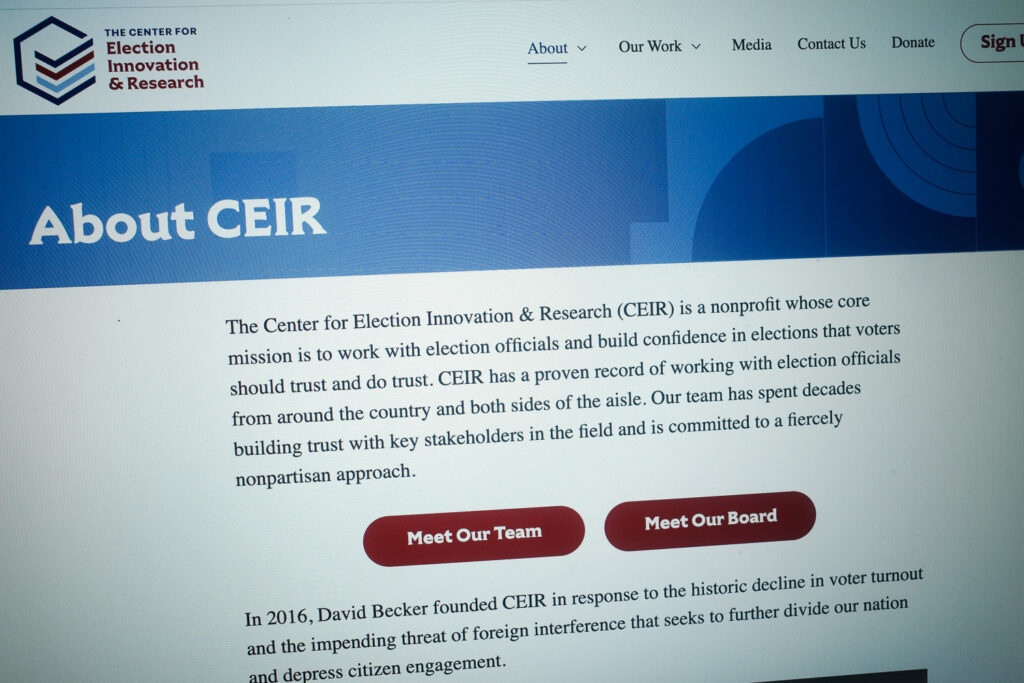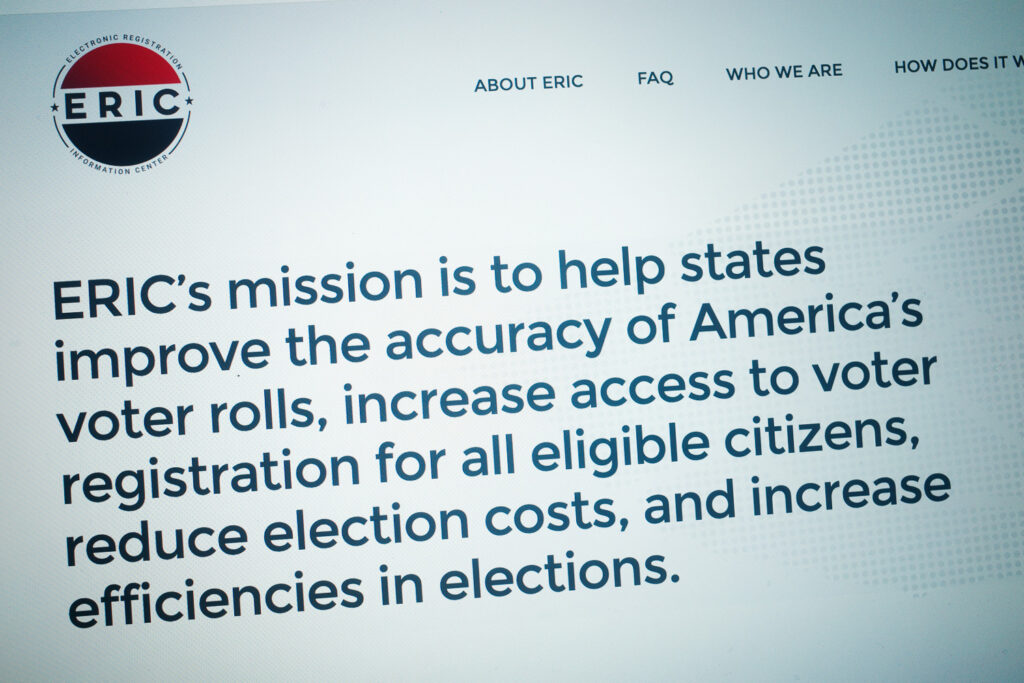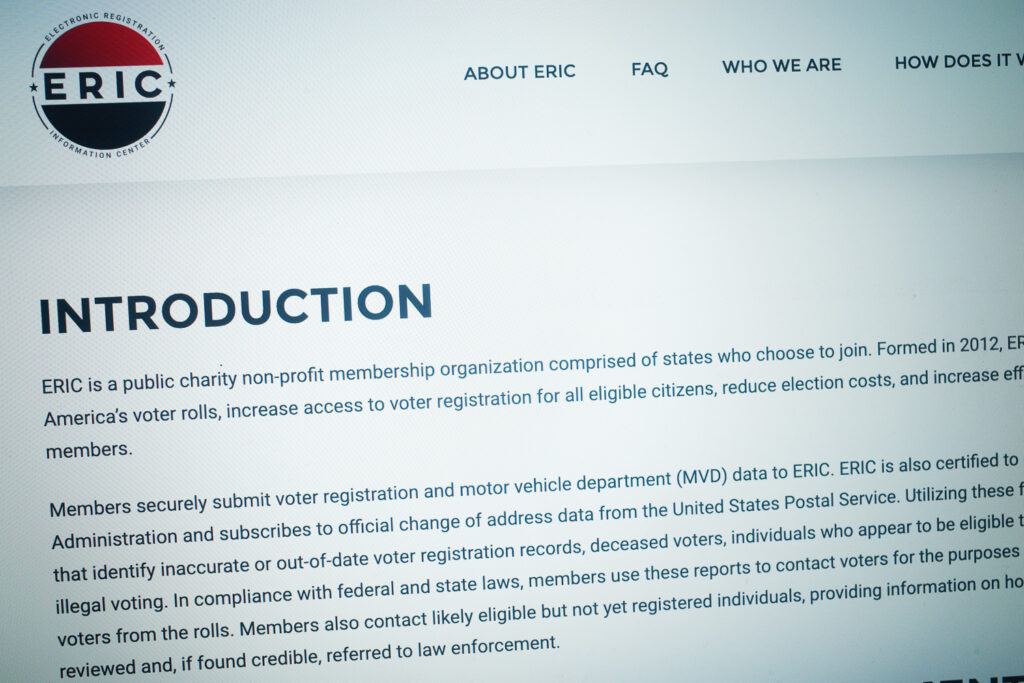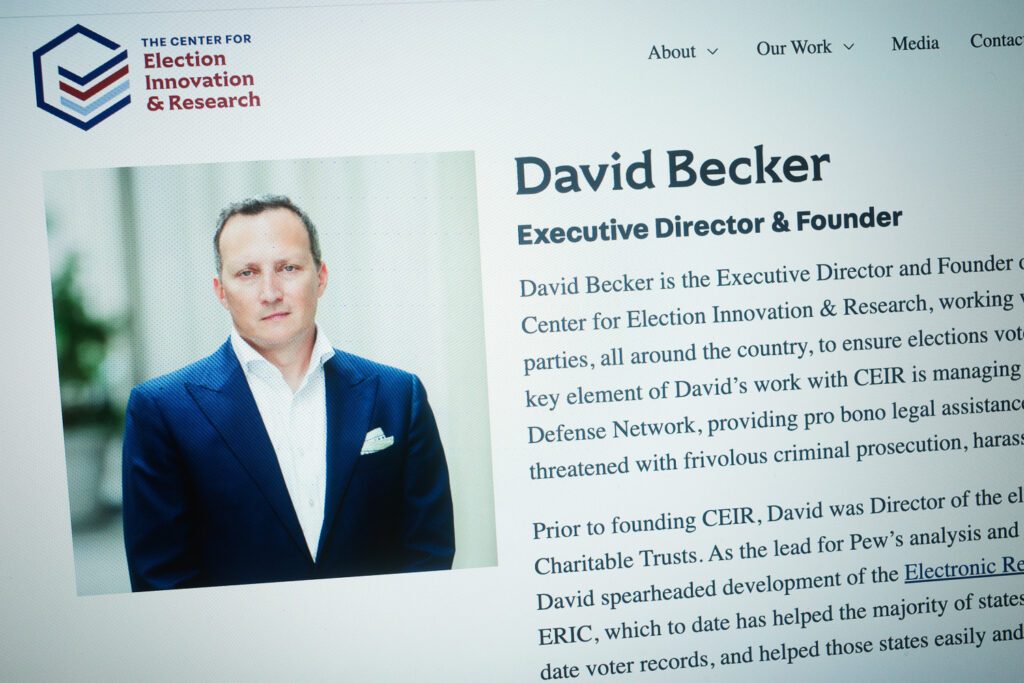One of Jocelyn Benson’s first acts as Secretary of State was to hand over Michigan’s voter data to a nonprofit, the Electronic Registration Information Center (ERIC). She did this her first week in office, and Michigan was the 25th state to join.
The very next year, a nonprofit headed by an ERIC founder named David Becker gave Benson’s own nonprofit $12 million on the eve of the 2020 election. His nonprofit is called the Center for Election Innovation and Research, or CEIR.
We’ve written about it before.
Benson turning over data to the national voter roll nonprofit in January 2019 received no media scrutiny at the time. But even more concerning than the dark money and the handing over of the state’s election information is its leader’s selective concern for election integrity.

“In 2016, David Becker founded CEIR in response to the historic decline in voter turnout and the impending threat of foreign interference that seeks to further divide our nation and depress citizen engagement,” CEIR explains on its website.
But in August 2024, Benson appeared on Firing Line alongside Becker. Together, they downplayed the prospect of non-citizen voting.
“We can’t say for sure that there are zero non-citizens voting, but it’s pretty darn close to zero, and this is a knowable thing,” Becker said.
“If there was evidence of widespread fraud or widespread instances of non-citizens voting, we would know that,” Benson added. “And we haven’t seen that.”
Becker even attested to the quality of Michigan’s voter data.
“Michigan has been a leader on this,” Becker said on Firing Line. “They were one of the very first to lead the way on sharing information with Motor Vehicles. They are one of the very first to create an effective statewide voter registration database.
“And so states like Michigan, led by a Democrat, states like Georgia, led by a Republican, actually have some of the very best voter lists among all the states… quality of voter lists is as high as it’s ever been right now,” Becker said.
Which is to say: When Trump won, Becker saw an “impending threat of foreign interference.”
When Biden won, foreign interference by illegal voting was “pretty darn close to zero.”
But in October 2024, the Benson-Becker narrative fell apart. Benson announced that a Chinese man, Haoxiang Gao, had voted in the Nov. 5 election—and that his vote would count.
After Gao admitted to voting, the Michigan media claimed there was a “single” instance of non-citizen voting.
Months later, Benson did a partial review of the data and found 16 instances of non-citizen voting in 2024 alone.
That review would not have happened if Haoxiang Gao had not reported his illegal vote. When Benson said “we would know that,” she was wrong. Gao’s vote was only discovered because he reported himself to election officials.
When Michigan turned over its voter roll information to the national nonprofit in 2019, Becker wrote he had “helped lead the effort to found ERIC in the summer of 2012.”

But Michigan lawmakers have begun to raise a stink about ERIC. The House version of the budget would have forced Michigan to withdraw from the partnership.
That effort failed, but ERIC is facing a member revolt in recent years. Eight Republican-led states have left. ERIC has the same number of member states, 25, as it did in 2019, when Benson signed Michigan up.
Michigan joining gave ERIC a credibility boost and more voter data. Seemingly in return, Becker’s CEIR gave $12 million to Benson’s dormant nonprofit, the Michigan Center for Election Law and Administration.
Benson’s nonprofit split the money between two Democrat operative groups.
The ad spend didn’t just help drive Democrat turnout. The $12 million helped to spread Benson’s visage far and wide. Benson plays a starring role in both of the paid ads on its now-dormant Facebook page.
Though Benson had officially departed from her nonprofit by then, her face still adorns its Facebook page. And the phone number on the page? It traces back to the dean’s office at Wayne Law School, a position Benson once held.

ERIC says it “helps states keep their voter lists up-to-date and accurate.” If this is true, Benson has not held up her end of the deal.
Going into the 2024 election, Michigan still had 500,000 inactive voters on its voter roll. This means Michigan had 105% of adults in the state registered to vote.
Membership in ERIC is not free. The privilege cost $25,000 the first year, and Benson said it would cost $20,000 each year after.
In September, two Republican clerks took to The Detroit News to defend Michigan’s membership in ERIC as the House pushed for withdrawal. But they offered no attempt to explain how Michigan’s voter rolls remain bloated despite that membership.
Ultimately, the 2026 budget passed without Michigan pulling out of ERIC. Michigan’s relationship with the Benson-friendly nonprofit will continue as she runs for governor.
Benson pays to share Michigan’s voter data with a friendly nonprofit.
Meanwhile, taxpayers will pay both sides of the bill as the U.S. Department of Justice sues Benson to obtain voter data from Michigan.
James David Dickson is an enjoyer of Michigan. Join him in conversation at @downi75.



